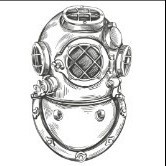9" Round HF Sensitivity To Thin Flat Iron Question
-
Similar Content
-
- 9 replies
- 3,613 views
-
- 28 replies
- 28,556 views
-
- 8 replies
- 2,322 views
-
- 0 replies
- 2,683 views
-
- 3 replies
- 2,625 views
-
- 10 replies
- 2,554 views
-
-








Recommended Posts
Create an account or sign in to comment
You need to be a member in order to leave a comment
Create an account
Sign up for a new account in our community. It's easy!
Register a new accountSign in
Already have an account? Sign in here.
Sign In Now